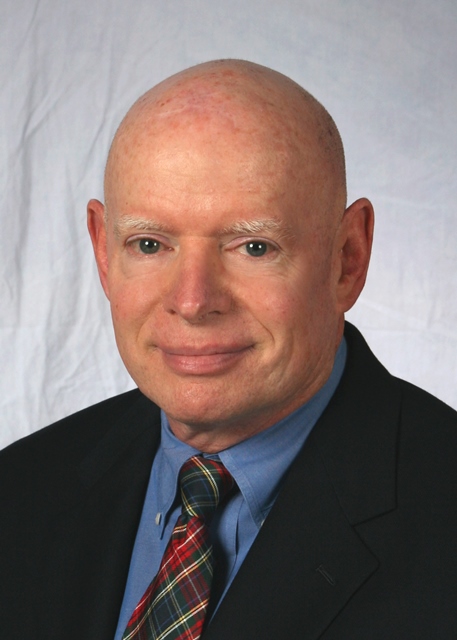By Jeff Brumley
By all accounts, chaplains around the nation are pretty excited about the coming release of a PBS documentary that explains their callings, and exactly what it is they do, to the rest of the world.
And what is it, exactly, that they do? The answer sounds like a pretty tall order: To be the presence of the divine in some of the most difficult situations imaginable, whether in hospitals, maximum security prisons or on battelfields.
“When we are doing our best job as chaplains we are being with people in the way we understand the way God’s spirit is with us,” said Malcom Marler, a Baptist minister turned Episcopal priest and director of pastoral care for University of Alabama at Birmingham Medicine.

Conveying that role was the goal of Emmy-winning filmmaker Martin Doblemeier and Journey Films in making Chaplains, scheduled to air Nov. 1. The two-hour film shadows chaplains serving in diverse roles, from military and hospital to prison and Capitol Hill.
According to its trailer, the documentary also seeks to show the many hats chaplains may wear, including pastor, social worker, counselor and bridge builder. It shows the profession as an emerging one still seeking to define itself.
Another motivation behind the film was to help more people understand the importance of chaplaincy to society as a whole, Doblemeier said during a Sept. 10 screening in Washington, D.C., The Christian Post reported.
Promoting chaplaincy
And that’s why Gerry Hutchinson said he’s been promoting the film at Cooperative Baptist events since 2014, when he was named the Fellowship’s endorser for chaplains and pastoral counselors.
That’s included posting the trailer and other information about the film on the ministry’s Facebook page and providing information — including a loop of the trailer at the chaplaincy table — at the General Assembly in June.
“I am always trying to promote chaplaincy ministry,” Hutchinson said. “I think this documentary tells that story.”
Hutchinson said he’s impressed with the documentary makers’ efforts to be religiously diverse as they shadowed Buddhist, Christian, Jewish, Muslim and other chaplains.
“Every chaplain is proud of the work they do and loves to tell that story,” he said.
Part of that story is a set of unique challenges of being a chaplain — difficulties most other ministers do not face, he said.

One of those is representing a certain faith group while serving people from others, Hutchinson said.
“As a chaplain, you will certainly care for fellow Baptists or Christians, but you can also be a spiritual caregiver to people of other faiths, or of no faith,” he said. “And you can cooperate with all other groups in the care of others, which is challenging.”
Christian chaplains can look at that apparent contradiction instead as a fulfilment of Christ’s command to show compassion for all people, said Hutchinson, who is a retired Navy captain and chaplain.
“We bear witness to our faith when we care for others — when we love others as ourselves,” he said.
‘It can be very confusing’
Some chaplains told Baptist News Global they welcome the film along with any effort to educate the public about chaplaincy.
“I have been a chaplain over 30 years and I still explain to family — my family — and people in my congregation,” said Jeff Flowers, a CBF-endorsed chaplain and director of pastoral care for Georgia Regents University Health System in Augusta.
Most people — unless they have been the recipient of chaplain services — think hospital chaplains simply visit patients in their rooms to offer prayers and hold chapel services, Flowers said.
“The truth is we are involved in so many other” facets of health care, he said.
Those include ethics discussions, end-of-life-issues, helping plan memorials and providing pastoral care to staff.
“I wind up explaining that a lot,” he said.
It may be that variety of tasks that confuses people about chaplaincy, said Stephanie McLeskey, college chaplain at Mars Hill University near Asheville, N.C.
“It can be very confusing,” she said.

At Mars Hill, McLeskey is responsible for pastor care for students, faculty and staff. She also provides counseling.
Another ministry she offers is spiritual formation, which includes leading worship services and organizing book studies, prayer groups and student-run campus ministries. She also assists students in planning local, regional and international mission trips.
“I’m also helping students understand the cultural and political issues in the places in which they live and where they are serving,” McLeskey said.
It’s different in many ways from the requirements for hospital or military chaplains. But she says her ministry is also like all other chaplaincy jobs in one important way.
“We are walking alongside other people in their own faith journeys,” she said. Chaplains as a whole “are meeting people where they are and traveling with them.”
‘What God does with us’
Another way to word that commonality, Marler said, is as a non-anxious presence.
That means being with people through some of the most difficult times of their lives, and not trying to fix the person or their situation.
Instead it means asking a series of open-ended questions designed to get people talking about their feelings and the actions they may want to take in the current crisis, he said.
That’s often the opposite response of friends or family or fellow church members who feel an urge to make those suffering feel better immediately.
“People often try to redirect or change or hurry a feeling,” he said.
A non-anxious presence, instead, helps people reflect on their suffering and talk about it.
“That is what God does with us,” Marler said. “He doesn’t just automatically change something.”
